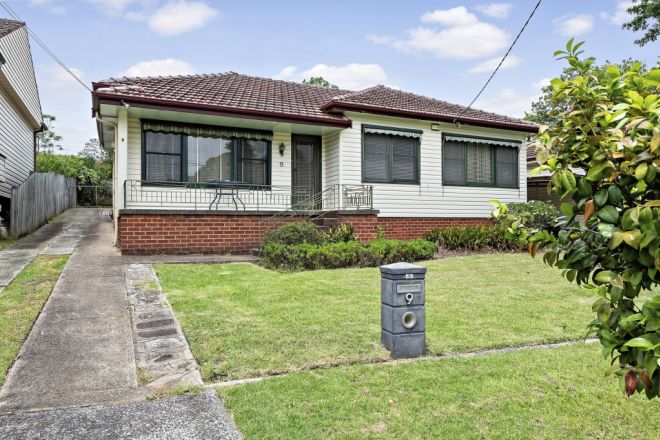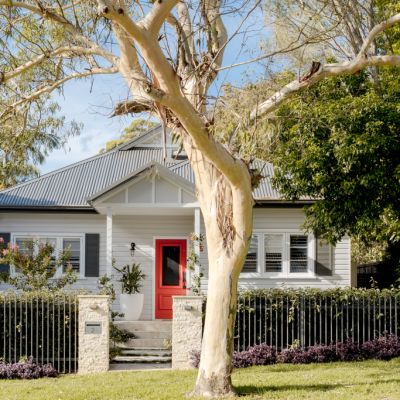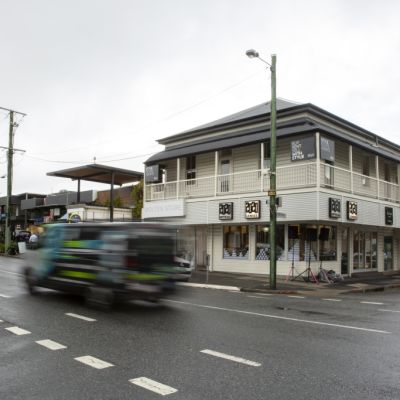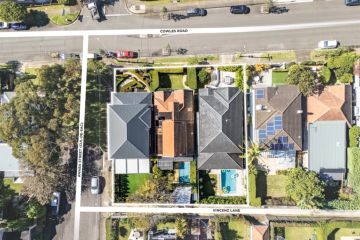How skyrocketing interest rates changed a generation
The sharpest rise in interest rates in decades could leave younger Australians more cautious and risk-averse as they face more uncertainty, social and economic experts say.
But the silver lining could be to make future leaders more resourceful after adapting to a blowout in mortgage costs alongside other crises.

Experts say 13 consecutive interest rate rises have affected the psyche of a generation. The hiking cycle and housing crisis hit home within a few years of the catastrophic bushfires of 2019 and a series of floods – exacerbated by climate change – plus the pandemic.
The challenges faced by Millennials and Generation Z give the Baby Boomers’ experience in the 1980s and 1990s a run for their money, despite their 17 per cent interest rates, a stock market crash and a recession.
Even after former Reserve Bank governor Phil Lowe predicted rates would be on hold until 2024 and then had to reconsider, mortgage affordability is now at its worst since 1990 in Sydney and Melbourne, and a home owner who bought a typical house in April 2022 would now need to find an extra $2951 in monthly mortgage repayments in Sydney or $2085 in Melbourne. Sydney’s median house price hit a record of almost $1.6 million last week; Melbourne is above $1 million and rising.
ANU demographer Dr Liz Allen said uncertainty had filtered through every aspect of younger Australians’ lives.
“We have housing insecurity, alongside housing affordability issues, paid work insecurity, and climate disaster looming. We have enormous elements of gender inequality,” Allen said.
She said wages failed to keep up with rising house prices and mortgage rates, which affected many middle-class young Australians’ decisions and ability to take calculated risks.
“It disrupted and uprooted lives and the psyche of people,” Allen said. “We have this perfect storm of uncertainty, which necessarily will impact decision-making about the types of risks and chances people take.”
The slow ratcheting of housing unaffordability thanks to 13 rate rises had crushed the Australian dream of homeownership, demographer Mark McCrindle said.
“It sounds like it’s an economic problem, but it’s at its core, a very emotional issue. Home ownership is about family. It’s about neighbourhood. It’s about community,” McCrindle said.
He said there was an understandable sense of angst among a generation who felt the social contract of working hard to get ahead had frayed, even after adapting by moving further away, opting for units and working side-hustles.
“But when even with all of that, it just no longer becomes feasible – that is read as a breach in the social contract. The deeper problem with that is that home ownership is a key element of community cohesion,” McCrindle said.
He said younger generations were less likely to be able to chase better suited jobs, fulfilling pursuits, volunteering and even having children.
Younger generations bear the brunt of taming inflation, McCrindle said. Recent Commonwealth Bank research found under 40s had reduced spending while over-70s spent at a greater rate than inflation last year.
“They’re [Baby Boomers] a fifth of the population. But they own more than half of the national private wealth.”
Ongoing pressures on young Australians would not only mean they are less inclined to take risks, constraining the country’s productivity, but also have concerning effects on the political landscape, former Liberal leader Dr John Hewson said.
“It is a defining moment [for this generation]. When the problems just seem to be going on and getting worse and a whole lot of rhetoric and hubris and not too much policy substance, people get justifiably cynical,” said Hewson, who is a professor at the Crawford School of Public Policy at ANU.
He said a generation was at risk of losing confidence in government processes, noting the collapse in the primary vote of the two major parties and the rise of independents.
It comes after a report found social and economic pressures were driving Australians apart with young adults the least trusting. Almost half of people aged 25 to 34 said they are pessimistic about the future compared to 35 per cent of those aged 65 and over.
A lack of hope could deter younger generations’ efforts, said Dr Angela Jackson, economist at Impact Economics.
“For young people who don’t have that bank of mum and dad, there’s very little hope for them that they can actually get into the property market and have that type of security into the future. That is going to change a lot of the other decisions they make in terms of the jobs that they take, in terms of their savings behaviour.”
But author and social psychologist Dr Hugh Mackay was more optimistic about the turbulent past five years.
“When a generation is being formed by uncertainty, and particularly by the experience of rate hikes … the floods, the fire, COVID, other big, big changes affecting this young generation. These are very formative influences,” said Mackay, who is also an honorary professor at ANU.
“Judging from history these formative influences are likely to be positive rather than negative, not making this generation risk averse, but making them more resilient,” he said.
“[Future leaders] will be far more realistic about what life is like and about the unpredictability and the uncertainty and the instability and how to manage it.”

We recommend
States
Capital Cities
Capital Cities - Rentals
Popular Areas
Allhomes
More










